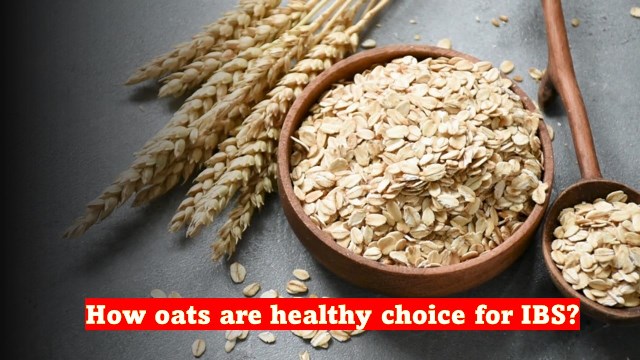Last Updated on June 12, 2024 by Dr. Abadullah Sajid Bashir
What are Oats?
Oats are a whole grain similar to wheat, but with a distinct nuttiness in flavor. They’re versatile and can be enjoyed in various ways.
The whole oat kernel can be hulled (removing the outer shell) and steamed, resulting in oat groats. These are then often chopped into steel-cut oats or rolled oats. Oat groats can be further ground into a fine powder called oat flour, which can be used for baking or as a thickener in soups and stews.
Rolled oats, commonly used for oatmeal, a popular breakfast porridge, are steamed and flattened oat groats. Quick oats cook faster than traditional rolled oats due to further processing. Instant oats, the most finely processed type, cook in just a minute or two with boiling water.
Oats are a nutritional powerhouse, rich in protein and fiber, providing sustained energy and keeping you feeling full for longer. They are also low in sugar, making them a great choice for those managing blood sugar levels. The soluble fiber in oats helps regulate digestion and may alleviate constipation.
Regular oat consumption offers several health benefits. They help lower cholesterol due to the soluble fiber beta-glucan, which reduces LDL (“bad”) cholesterol. By lowering cholesterol and potentially reducing blood pressure, oats contribute to overall cardiovascular health. Feeling full after eating oats can help control calorie intake and support weight management efforts.
What is IBS?
Irritable Bowel Syndrome, or IBS, is a condition that affects the large intestine. It’s a common problem, and many people experience symptoms like stomach cramps, diarrhea, constipation, and bloating. These symptoms can be frustrating and uncomfortable, and they may flare up from time to time.
The good news is that IBS isn’t life-threatening. There’s no cure, but there are ways to manage the symptoms and feel better. Doctors can recommend dietary changes, medication, and stress management techniques to help control IBS and improve your quality of life. If you’re experiencing these symptoms, talking to a doctor can help you find a treatment plan that works for you.
To minimize symptoms and reduce anxiety, IBS patients can employ several methods. The most important factor influencing IBS symptoms is often their daily diet. Therefore, careful food selection becomes crucial.
1. The patient first changes his diet.
2. Keeps himself busy with many tasks.
3. It also changes its lifestyle.
Making dietary adjustments is a cornerstone of managing IBS. Patients may benefit from keeping a food diary to identify foods that trigger their symptoms. Common triggers include dairy products, gluten, spicy foods, and certain fruits and vegetables. Working with a doctor or registered dietitian can help create a personalized plan to manage these triggers and ensure proper nutrition.
Oats and Irritable Bowel Syndrome (IBS)
For people with IBS, managing digestive symptoms is a constant battle. The good news is, oats can be a helpful weapon in this fight!
Why are oats good for IBS?
-
Fiber Powerhouse: Oats are packed with fiber, especially soluble fiber. This type of fiber helps soften stool and allows it to move smoothly through the digestive system, easing constipation, a common IBS woe.
-
Gentle on the Gut: Unlike some insoluble fibers that can irritate a sensitive gut, soluble fiber in oats breaks down gently, causing less bloating and discomfort.
Things to Consider
-
Oat Choice Matters, Steel-cut oats, while a healthy option overall, might be a bit too rough for some IBS sufferers. Rolled oats or quick oats are easier to digest for most.
-
Portion Control is Key, Even a good thing can become a problem in excess. While oats are beneficial, overdoing it can lead to gas and indigestion. Start with a moderate serving and adjust based on your tolerance.
-
Sugar Blues, Added sugar can worsen IBS symptoms. Opt for natural sweeteners like fruits or a drizzle of honey, or enjoy your oats plain.
Everyone’s IBS is different. What works for one person might not work for another. If IBS. If a patient of IBS-D consumes oats, his stomach will be cured and if there is inflammation in the intestines, it will disappear. But these patients should not use it in excess. It’s important to listen to your body and introduce oats gradually to see how you react. If you experience any discomfort, adjust your portion size or oat type.
If the article is beneficial for you please write to us for your valuable suggestions.
Written By:
- Abadullah Sajid Bashir
Reviewed By:
- Dr. Muhammad Zubair Chaudhary
- Syeda Noor-ul-Ain Naqvi
For Reviewer Detail Click Here

